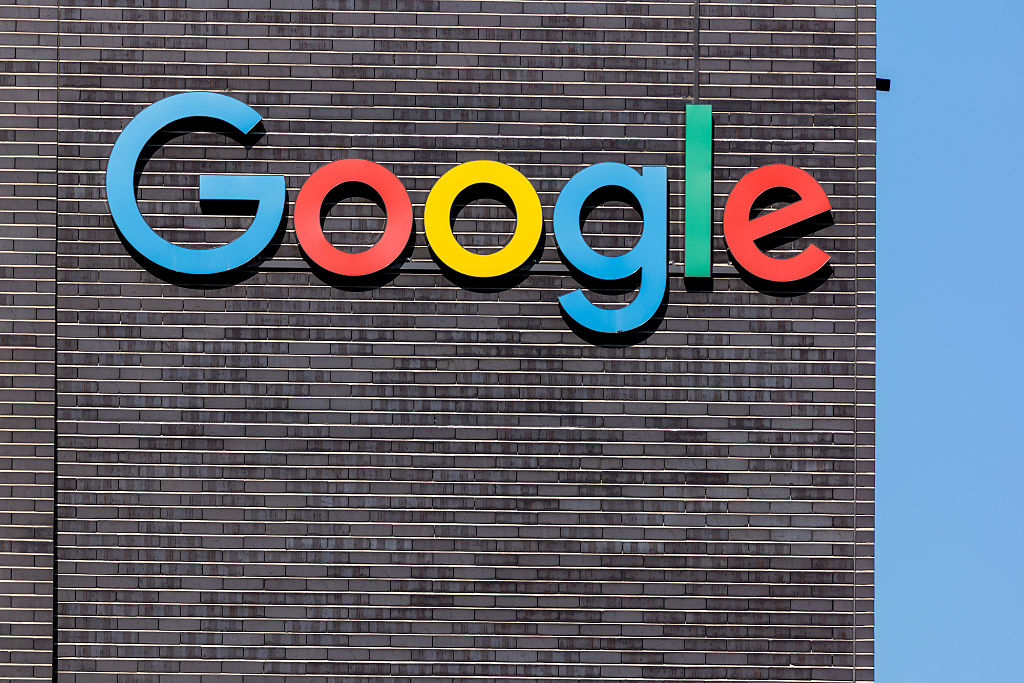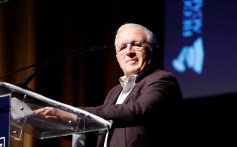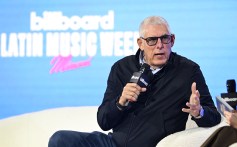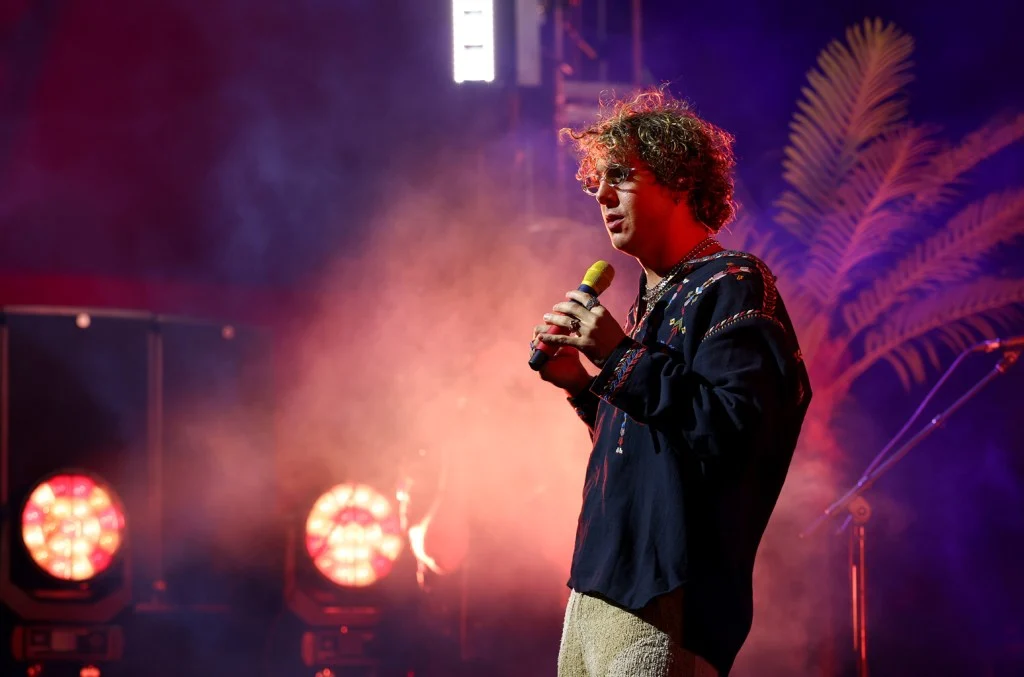youtube
Trending on Billboard YouTube has released its 2025 Year-End Trending Lists, recognizing creators, songs, podcasts and cultural moments that defined 2025. The Bruno Mars/Lady Gaga hit “Die With a Smile” leads YouTube’s 2025 year-end top songs list, which also includes the ROSÉ/Bruno Mars hit “APT.,” and four songs from the Kpop Demon Hunters soundtrack, “Golden,” […]
Trending on Billboard
Echoing disagreements between YouTube and music rights holders, Alphabet-owned YouTube TV is currently in fraught negotiations with Disney over the amounts the pay TV streaming platform is willing to pay for the company’s TV channels, which were pulled from YouTube TV on Oct. 30 after the two sides failed to agree on the terms of a licensing renewal.
The fracas is part of a larger pattern, artist manager and businessman Irving Azoff wrote in a Nov. 5 op-ed at Billboard. Azoff, a longtime YouTube critic, called the company “a behemoth bully” that uses its vast market power to coerce content owners. “The playbook is always the same: if you refuse to accept YouTube’s below-market terms, YouTube threatens to go dark until you capitulate.”
Related
Similar disagreements have plagued the music industry’s relationship with YouTube over the decades. (YouTube TV is run separately from YouTube, which generates most of its income from advertising.) Most notably, Warner Music Group pulled its catalog off YouTube in 2008 after licensing negotiations broke down. Over the years, rights owners have frequently — and publicly — complained about YouTube’s relatively low royalty payouts and a business model that allows for user-generated content that often includes copyright-protected music.
The pay TV dispute pits one of the world’s largest tech companies against the owner of some of America’s most popular TV channels. Disney owns more than 20 TV channels that span sports (ESPN, ACC Network, SEC Network), entertainment (FX, Freeform, Localish), family (Disney Channel), National Geographic and ABC and its local affiliates. Disney CEO Bob Iger has called these broadcast TV brands an “asset” that operate alongside its growing streaming platforms, Disney+ and Hulu.
News reports say that Disney offered YouTube TV terms commensurate with its latest deals with the largest pay TV providers, Comcast and Charter, while YouTube insists it has “been working in good faith” on a deal “that pays them fairly” for their content. However, Disney has cited YouTube TV’s “repeated refusal to negotiate in good faith” and demand for preferential treatment.
Related
Disputes over carriage — the agreements in which a multi-channel video distributor includes a TV network’s channels — are not uncommon. YouTube also removed Televisa/Univision channels in October and narrowly averted a blackout with Fox in August. As for Disney, carriage disputes caused its channels to briefly go missing from DirecTV in 2024, Charter in 2023 and Dish in 2022.
But the Disney-YouTube battle isn’t a battle of equals — or close to it. A relative newcomer to the pay TV business, eight-year-old YouTube TV is the fourth-largest pay TV provider in the U.S. with nearly 10 million subscribers. But YouTube TV is a small fraction of parent company Alphabet’s total business. At $83 per month and 10 million subscribers, YouTube TV generated $7.4 billion in the first nine months of 2025 — just 2.6% of parent company Alphabet’s $289 billion of revenue in that period.
For Disney, the loss of carriage fees works out to approximately $2 billion annually, or 2% of Disney’s revenues, Lightshed Partners’ Rich Greenfield told CNBC on Monday (Nov. 3). That weighs more heavily on Disney, which generated $72 billion of revenue in the first nine months of its fiscal year (the company releases fiscal year results on Nov. 13), than YouTube TV. “When Charter loses ESPN, everybody goes, ‘How can Charter survive?’,” said Greenfield. “There’s not one investor going, ‘God, is Google going to survive this?’”
Failing to reach a resolution could drive consumers to find Disney programming elsewhere. Consumers can access Disney or any other TV content in numerous places. Desired sports content such as Monday Night Football is available through ESPN Unlimited for $29.99 per month or $299.99 per year. Bundling ESPN Unlimited with Hulu — wholly owned by Disney — and Disney+ offers sports and a wider variety of programming that costs $29.99 per month with ads or $38.99 per month without ads.
A new survey from Drive Research found that 24% of YouTube subscribers have already canceled or plan to cancel their YouTube TV subscription as a result of the dispute. Additionally, 30% of subscribers said they have subscribed or intend to subscribe to ESPN Unlimited or Hulu’s live sports plan to maintain access to sporting events. Clearly, the backlash to the Disney fracas is real — but a giant like YouTube TV can afford to shed subscribers in a way other carriers likely couldn’t.
Trending on Billboard
David Israelite’s guest column on October 23, 2025 explained how little music creators get paid across different streaming services. I just want to lay out the facts and be clear: YouTube pays the least for music, full stop. They always have and always will unless someone stands up to them. They’ll throw up smoke screens and tempt you to look the other way, but let’s not be fooled.
YouTube recently touted that it paid artists $8 billion over the past year. This sounds impressive, but it’s not. During the same period, Spotify generated roughly $18 billion in revenue and paid about $12 billion to music rights holders — nearly 67% of its revenue. By contrast, YouTube generated $60 billion in revenue and paid only $8 billion to rights holders — about 13%. YouTube will say they’re not just a music service. But I would argue that YouTube never would have become such a successful platform without music, and even if only one-third of their revenue comes from music (and it’s likely higher), they certainly should be paying more than Spotify, not 50% less.
Related
How does YouTube pay less than their competitors? They are a behemoth bully. They have 2.7 billion monthly active users and more than $60 billion in annual revenue. It’s the dominant video platform, with more hours streamed than Netflix. It’s the largest music service, with more users than Spotify. And in the “traditional” TV space, it’s on track to surpass Comcast as the largest U.S. cable provider. This company now owns audience and content delivery in a way the world has never seen before.
Their tyranny isn’t just limited to music. If you read the headlines, you will see a pattern of coercion: YouTube vs. Televisa/Univision. YouTube vs. NBCUniversal. YouTube vs. Fox. YouTube vs. Paramount. And now YouTube vs. Disney. The playbook is always the same: if you refuse to accept YouTube’s below-market terms, YouTube threatens to go dark until you capitulate. They then shift the blame and spin the story — when in reality, YouTube just wants to pay less.
And now they’re trying to dictate terms to consumers too. If you’re a YouTube TV subscriber, you received an email saying “if Disney’s content is unavailable for an extended period of time,” YouTube will give you a paltry $20 credit. So, YouTube gets to unilaterally decide for consumers how long is too long and how much ESPN is worth to them? They bully the people creating the content and then they bully the consumers who want access to it.
Related
Disney understands that “content is king,” but at YouTube, content is just a pawn in their game. And the game at YouTube is clearly about aggregating services and market power (across Google and YouTube) and using that market power to strong-arm everyone in the ecosystem — rights holders, content creators, advertisers, everyone — for their own financial gain. YouTube is showing us what happens when unchecked power and greed collide.
Thankfully, Disney is standing up to YouTube, and we all need to support Disney because enough is enough. As artists, consumers, and companies, let’s voice our support for Disney in this battle with YouTube. And in parallel, Washington needs to take a good hard look at YouTube’s abuse of market power and explore whether it’s time to break up Google so that YouTube, YouTube Music, and YouTube TV are separate businesses that finally have to compete on a level playing field.
YouTube: without the artists, athletes, and actors, there is no business.
Irving Azoff holds the title of chairman and CEO of The Azoff Company and is the personal manager of the legendary Eagles, Jon Bon Jovi, U2, John Mayer, Van Halen, Gwen Stefani, Steely Dan, Maroon 5, and many others. The Azoff Company is a privately held media and entertainment company dedicated to investing in positively disruptive businesses that put artists and fans first. Azoff was inducted into the Rock and Roll Hall of Fame in 2020.
Trending on Billboard
Universal Music Group (UMG) reported solid growth across all three business units on Thursday (Oct. 30), with revenue rising 10.2% in constant currency to 3.02 billion euros ($3.53 billion). Early shipments of Taylor Swift’s The Life of a Showgirl, which had an Oct. 3 street date, helped UMG’s physical sales jump 23% year over year. But the quarter was dominated by subscription gains and strong publishing results. During Thursday’s conference call, the conversation was heavy on AI and UMG’s new partnership with the generative AI platform Udio.
Here are some main takeaways from UMG’s third-quarter results and executives’ comments during Thursday’s conference call.
Related
UMG Announced a Renewed Licensing Deal with YouTube
Usually, a major announcement regarding a leading streaming platform gets its own press release. But during Thursday’s conference call, CEO Lucian Grainge slipped news of UMG’s new licensing deal with YouTube into his opening remarks. It’s the company’s third licensing deal in its “Streaming 2.0” initiative and covers both recorded music and publishing. Previous Streaming 2.0 deals, which the company says prioritize artist-centric principles, were signed with Amazon in December and Spotify in January.
“The agreement includes all aspects of YouTube’s various music services and platforms, embodies our artist centric principles and drives greater monetization for artists and songwriters,” Grainge said. “And as part of our new YouTube deal, we’ve secured really important guardrails and protection for our artists and writers around Gen AI content.”
The Udio Partnership Furthers UMG’s Superfan Ambitions
Some people view a generative AI platform as a means to create music that competes with artists signed to both major and independent record labels. That may have been the common perception of Udio, a popular music-making platform that requires only simple text prompts to create fully formed songs. But on Thursday, UMG made it clear it views its newly signed licensing partnership with Udio as part of its ambitions to reach “superfans,” the people who spend the most time and money on music. That puts Udio in the same category as the long-awaited superfan tiers of subscription services such as Spotify.
Related
“What we’ve announced with Udio, and in terms of artist centricity, what’s significant there is that the product vision is to focus on a superfan experience for customization, a deep engagement [and] hyper-personalization of the experience for fans interacting through AI technology with the artists that they love,” chief digital officer Michael Nash explained during the conference call. Nash called Udio’s new platform, which will launch in 2026, a “subscription service [that] will transform the user engagement experience, creating a license to protect the environment, to customize, stream and share music responsibly on the audio platform.”
The Artist is Central to AI Music
UMG executives were coy when asked for specifics about the Udio partnership, but they repeatedly emphasized that any AI music platform that partners with UMG will have an artist-centric approach. Nash mentioned UMG’s just-announced partnership with Stability AI, a startup that builds generative AI models for audio and video, to create new tools that benefit its artists and songwriters.
“The economics of the music ecosystem are really driven by fans’ desire to engage with artists and by fans’ desire to participate in music culture,” Nash explained. “We’re envisioning products that deepen both of those things.” Nash pointed to UMG’s internal research of the U.S. market that revealed 50% of music consumers are interested in AI “in relationship to their music experience.” But fake artists ranked lowest amongst U.S. consumers. “There’s a lack of traction” amongst fake artists, he noted, “other than the occasional novelty phenomenon that may capture some headlines.”
Related
Short-Form Video Has Caused a “Disruption” in Ad-Supported Royalties
People love watching short videos on platforms such as TikTok and YouTube Shorts. Unfortunately for record labels and music publishers, newer short-form platforms don’t monetize music as well as older, long-form platforms with established advertising businesses. As a result, UMG’s streaming revenue — everything other than subscriptions — was flat in constant currency. Other than digital downloads, which were also flat, every other aspect of UMG’s recorded music division posted gains in the quarter. Nash said UMG’s recent licensing deals, including the one with YouTube that was announced during the conference call, were the result of “broad-based efforts” to address the “disruption” to ad-supported royalties caused by short-form video and efforts to better monetize it.
UMG is Making Progress with Japanese Music — Both Inside and Outside of the Country
Japanese music has a reputation for not traveling well, but Grainge highlighted the success of Japanese artists outside of their home country. In March, BABYMETAL signed to Capitol Music Group in the U.S. and, according to Grainge, became the first Japanese artist ever to reach the top 10 of the Billboard 200 album chart with its album Metal Forth. Earlier this year, Grainge added, UMG’s J-pop artist Ado played to 500,000 fans in 33 cities across Asia, Europe, the U.S. and Latin America. UMG fared well inside Japan, too, led by releases from Mrs. GREEN APPLE and Fujii Kaze, with strong sales there helping drive UMG’s 23% increase in physical sales.
Additionally, Grainge said that UMG recently increased its majority stake in Japanese label and artist management company A-Sketch by acquiring the minority stake of KDDI Corporation. UMG initially acquired its majority interest in February by purchasing the stake of the company’s co-founder, Amuse.
Related
The Best Subscription Growth in Q3 Came from Outside the U.S.
Growth in subscribers in the top 10 markets, not price increases, was the major factor in UMG’s 8.7% (in constant currency) subscription revenue growth, said CFO Matt Ellis. But the U.S. wasn’t at the top of the list. UMG saw double-digit subscription growth in China, Brazil and Mexico, while in the U.S., it saw high single-digit growth. Four of UMG’s top five streaming services delivered double-digit or high single-digit revenue growth.
With 8.7% subscription growth, UMG was within the 8% to 10% range it targets for long-term growth. Good thing, too, since investors see subscription growth as an all-important metric when assessing UMG’s market value. “We remain encouraged by the trajectory of the subscription business,” said Ellis.
Trending on Billboard As part of a significant reorganization of its product teams, YouTube promoted Christian Oestlien, previously vp of product management, to lead a team responsible for subscription products across YouTube Music, YouTube TV and YouTube Premium. As vp of YouTube’s subscription products, Oestlien will also oversee podcasts, commerce and YouTube Primetime Channels. Related […]
Trending on Billboard YouTube paid more than $8 billion to the music business in the 12-month period of July 2024 to June 2025, Lyor Cohen, YouTube’s global head of music, said Wednesday (Oct. 22) during a fireside chat with Billboard editor-in-chief Hannah Karp at Billboard Latin Music Week. Related The amount the music business receives […]

Source: picture alliance / Getty / Alphabet / Google
You were not bugging if your Spotify, Gmail, or Discord was acting funky today. Google confirmed there was a massive Google Cloud outage affecting those other services and more.
The Times of India reports that Alphabet’s Google Cloud experienced a widespread outage, affecting tens of thousands of users across various platforms.
According to reports, platforms such as Spotify, YouTube, Google Meet, Snapchat, Shopify, Discord, and Switch all suffered some form of service disruptions.
Google confirmed the outage, noting that numerous products were experiencing service disruptions. The company wrote on its status page, “Our engineers are continuing to mitigate the issue, and we have confirmation that the issue has recovered in some locations.” Google did not provide a time for a resolution at the time.
Per Times of India:
Downdetector, which tracks outages based on user reports, recorded over 10,000 incidents related to Google Cloud and more than 44,000 reports for Spotify around 2:46 p.m. ET in the U.S. Additionally, users reported over 4,000 incidents each for Google Meet and Google Search, and more than 8,000 for Discord.
Cloudflare, which also reported an outage on Thursday, clarified through spokesperson Alexander Modiano that its core services were unaffected, attributing the issue to Google Cloud’s disruption.
Spotify users took to X, formerly Twitter, to voice their displeasure. You can see those reactions in the gallery below.
HipHopWired Featured Video
CLOSE
If the party was over and our time on Earth was through… could you say you’ve watched Lady Gaga and Bruno Mars‘ “Die With a Smile” video? Since its release more than eight months ago, the music video has officially racked up 1 billion views on YouTube — so yes, a few people can say […]
Madonna‘s steamy video for her 1987 True Blue single “La Isla Bonita” has joined the YouTube billion-views club. The visual for the song featuring flamenco guitar, maracas and Latin percussion was helmed by prolific film (Pet Sematary Two, Best. Christmas. Ever!) and TV director Mary Lambert, known for her work on music videos for Janet […]
To decorate their Coachella stage like a beach party in their seaside home region of La Guaira, Venezuela, Rawayana hauled in inflatable SUVs, palm trees and tiki huts — all designed to make the Grammy-winning band’s YouTube festival livestream last weekend more colorful and magnetic. “It’s a live TV broadcast,” says Carlos Framil, Rawayana’s co-manager. “They knew it was going to be livestreamed. It was a prominent part of the strategic planning.”
The plan paid off. Rawayana’s streams, and ticket sales for its upcoming tour, spiked in the days after the first-weekend performance, narrated as part of YouTube’s new “Watch With” program by influencers Bryan and Eddy Skabeche. “We’re seeing it as a Coachella bump,” says Framil, of Miami-based Sound of Light. “And we’re attributing that to the livestream.”
Trending on Billboard
Coachella’s live YouTube feed, now in its 13th year, is the “gold standard” of festival livestreaming, according to Lee Anderson, president of Wasserman, the talent agency whose many Coachella acts this year include Ravyn Lenae, Viagra Boys and A.G. Cook. “When the streams started, most people didn’t want them, or thought they should be compensated. It was a big fight,” he says, adding that the Coachella livestream really took off just before the pandemic, which then boosted the popularity of watching live events at home. “The Coachella one went from people being upset that they were on it to being upset that they weren’t on it.”
Music festivals have live streamed performances since the early 2000s, when Bonnaroo partnered with America Online; YouTube then helped turn live performances into music-business revenue in 2010, when it removed its 15-minute cap on video lengths, thus enabling long concert videos that could be festooned with money-making advertising clips. Artists’ initial reluctance has “long been resolved and it’s an old issue,” says Lyor Cohen, YouTube’s head of music and a longtime ex-major-label exec, referring to a “super-valuable” partnership with AEG-owned Goldenvoice, Coachella’s promoter. “The Goldenvoice team feel like it’s a two plus two equals five opportunity.”
Coachella performances often boost headliners’ streaming numbers — this year, Charli XCX earned 12.7 million on-demand streams in the days after her Saturday performance, a 27% increase. Lady Gaga scored a similar spike; Green Day‘s jump was 17%. As for the livestream, YouTube reps won’t provide viewer metrics, but the Google-owned streaming giant reports huge bumps in international consumption. Over the past three Coachellas, more than half of the views came from outside the U.S., as Brazil views doubled, Mexico views jumped fivefold, India views increased 900% and Korea views increased 1,400%. The festival has scored more than 1 billion YouTube views overall.
Cohen suggests Goldenvoice has booked more international acts in recent years due to the livestream’s global-viewership increases — this year’s lineup includes Thailand-born K-pop star Lisa, Nigeria’s Seun Kuti & Egypt 80 and Egypt’s Mohamed Ramadan, among many others. “I don’t think there’s actually science in representing the amount of people sitting in any given living room in Mexico or Nigeria or Korea,” Cohen says. “They’re not watching alone. You can bring your friends over.”
The Watch With collaboration, adds Christian Oestlien, YouTube’s vp of product management, was inspired by “watch-along” commentary by social-media creators for soccer and other sporting events. YouTube’s research showed 50% of viewers preferred “hearing a creator walk them through a live event than watching the live event themselves,” according to Oestlien, and Coachella posted regional YouTube curators in Brazil and elsewhere for commentary on top headliners like Lady Gaga. “In every market, we’re trying to appeal to local fandom,” he says.
For Alok, a Brazilian DJ and producer, last weekend’s Watch With show with Bloguerinha was a way of linking the Coachella livestream audience with the influencer’s 4.3 million Instagram followers and 1.8 million YouTube subscribers. “This enriches and enhances the experience we can offer around an artist, so this is a very powerful tool,” says Fabio Soares, Alok’s creative director. Filipi Minatel, manager of Alok’s label, adds that the first-week Coachella livestream has led to more social-media and streaming activity. “Coachella makes this massive exposure,” he says. “It’s not only the live broadcast. It is everything that happens after that.”

 State Champ Radio
State Champ Radio 









